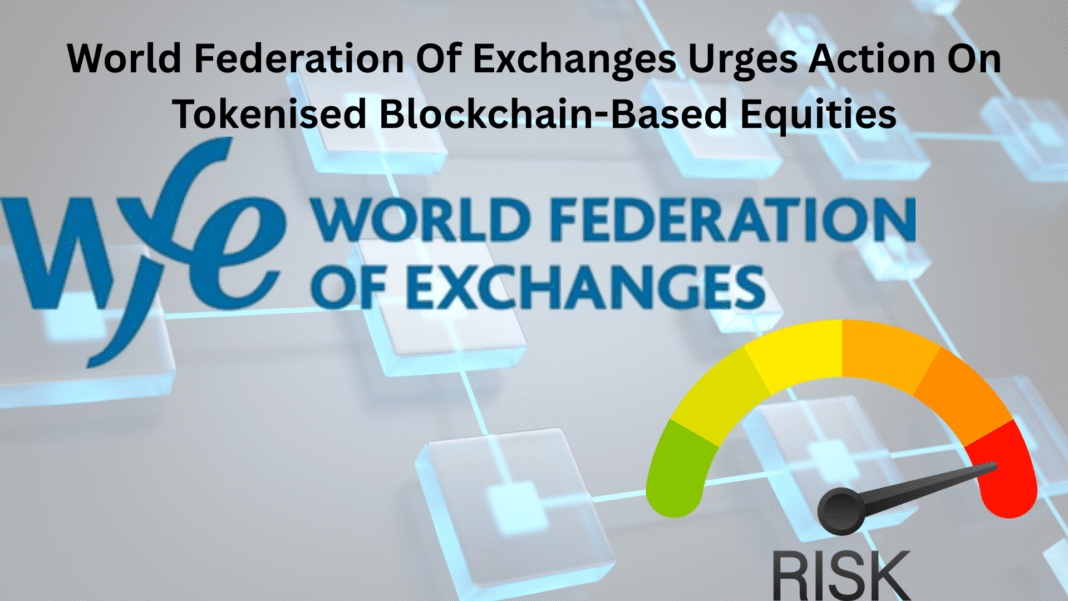The World Federation of Exchanges has urged top securities regulators to tighten rules around tokenised stocks, warning that the fast-growing market could mislead investors and undermine trust in financial markets, Reuters reported.
The London-based group, which represents the world’s largest stock exchanges and clearing houses, sent a letter last Friday to the U.S. SEC’s Crypto Task Force, the European Securities and Markets Authority, and IOSCO’s Fintech Task Force.
In the letter, the WFE said tokenised shares are being marketed as if they are real stocks, even though they do not provide the same rights as ownership in the underlying company.
What are tokenised stocks?
Tokenised equities are defined as digital tokens based on blockchain technology that represent shares in a company. They enable participants to engage in buying and selling an asset that tracks the price of a stock without the obligation of direct shareholder rights.
Proponents argue that these tokens reduce costs in trading, accelerate settlements, and enable 24/7 access to equity-like products. They argue in favour of the tokens by stating that the tokens can enhance investment in the private and public companies.
Concerns raised by exchanges
In its letter, the WFE said that brokers and crypto platforms are increasingly promoting products labelled as stock tokens or stock equivalents when they are not.
The association warned that these offerings risk creating a confusing investor landscape that undermines trust in the primary market. The group also warned that reputational risk can be incurred by companies whose shares are tokenised and mirrored, without their participation, if the tokenised shares collapse.
Nandini Sukumar, the WFE’s chief executive, said the stance reflects growing unease from market operators and listed companies. She told Reuters that several issuers have already voiced concerns to their home exchanges.
Also Read: Spiko Raises $22M To Launch Europe’s First Tokenised Money Market Funds
The WFE is asking regulators to apply existing securities rules to tokenised shares, provide clarity on legal ownership and custody, and stop platforms from presenting them as identical to regular stocks.
Industry players expanding
Crypto exchange Coinbase and broker Robinhood are among the firms making a push into tokenised equities. Robinhood launched such products for its EU clients in June and said it intends to issue tokens tied to private firms, including OpenAI.
In response, OpenAI said it did not support the initiative and was not connected to the token offering.
Regulatory stance so far
Regulators are watching the trend but have not yet issued uniform rules. An SEC commissioner said in July that tokenised securities must comply with existing securities laws.
The SEC and IOSCO did not reply to requests for comment, while ESMA declined to discuss the matter. The WFE’s intervention suggests that regulators may come under stronger pressure to act soon as trading platforms expand token offerings.
What this means for investors?
The development of tokenised stocks showcases the increasing penetration of blockchain technology into traditional finance. Although these products promise efficiency and access, they also straddle the boundary between a regulated security and an unregulated token.
There is the risk, from an investor’s perspective, of acquiring instruments that do not confer voting rights, dividends, and the legal protections of actual shares. For regulators and exchanges, the more pertinent challenge is ensuring that confusion is minimised while there is room for responsible development.
Also Read: JPMorgan Says Regulators Back Tokenised Bank Deposits More Than Stablecoins


